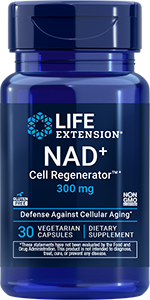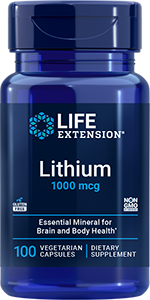
Newsletter
Newsletter
Current Vitamin D Recommendations May Be Insufficient to Achieve Optimal Levels

Results of a study conducted by Intermountain Health in Utah suggest that the current U.S. Recommended Dietary Allowance (RDA) of 600-800 IU per day is often insufficient to elevate serum vitamin D to optimal levels.1 The findings, from a trial in patients with a history of acute coronary syndrome, were presented at the American Heart Association’s Scientific Sessions 2023 on November 12 and 13.
“Our findings here show that just giving patients some vitamin D does not help them achieve optimal levels,” stated lead author Heidi May, PhD. “If researchers are going to further look at vitamin D dosing as a possible way to improve heart health, patients need to be given the right doses to reach those ideal levels.”
The current study analyzed data from a trial that investigated whether achieving desirable vitamin D levels through personalized management of vitamin D intake would improve cardiovascular outcomes. Three hundred sixteen participants were given vitamin D3 if their serum 25-hydroxyvitamin D level was lower than 40 ng/mL. An equal number of control group participants received a recommendation to discuss their vitamin D with a clinician, with 40 ng/mL as a goal.
Among the group that received vitamin D, only 13.5% were able to reach the target serum levels when given a 2,000 IU daily dose; over half required 5,000-8,000 IU per day; and 14.5% required over 10,000 IU per day. Fewer than 65% of treated participants reached the targeted vitamin D levels of 40 ng/mL at three months and 25% needed six months to achieve the study’s goal of greater than 40 ng/mL.
In addition to demonstrating the need for higher dosages of vitamin D, the study’s findings also emphasize the importance of using blood tests to guide vitamin intake. “These findings show that without taking a tailored approach to evaluating and dosing with vitamin D, patients most likely will not see any results,” Viet T. Le, DMSc, PA-C, of Intermountain Health explained. “We need to be far more intentional in how we’re treating patients with vitamin D beyond just telling them to take a vitamin capsule.”
Products
Apply What You’ve Learned: Vitamin D Testing
- Testing for vitamin D, while once uncommon, is now frequently requested by patients and physicians. The most popular vitamin test is 25-hydroxyvitamin D [25(OH)D], which is measured in nanograms per milliliter (ng/mL) and sometimes as nanomoles per liter (nmol/L). (A nanomole is equal to 0.4 ng/mL.) This test measures the total of 25-hydroxyvitamin D2 and 25-hydroxyvitamin D3 in serum or plasma.
- 1,25-dihydroxyvitamin D is the biologically active form of vitamin D. While it can be tested in the blood, it’s not a good measure of a person’s vitamin D status.2
- Life Extension considers 50-80 ng/mL to be an optimal 25-hydroxyvitamin D level. Vitamin D deficiency is generally recognized as a 25-hydroxyvitamin D level of less than 20 ng/mL.
- Vitamin D status has been associated with numerous health conditions, including cancer, cardiovascular disease, cognitive impairment, dental caries, type 2 diabetes, infectious diseases, neurologic disorders, osteoporosis and periodontitis.3-8 For this reason, and to support optimal health, it is important to maintain regular testing for vitamin D levels throughout our lifetimes.
References
- Le VT et al. Circulation. 2023 Nov 6;148:A14841.
- Holick MF. Ann Epidemiol. 2009 Feb;19(2):73–78.
- Holick MF. Rev Endocr Metab Disord. 2017 Jun;18(2):153-165.
- Seraphin G et al. J Steroid Biochem Mol Biol. 2023 Jul:231:106308.
- Latic N et al. Int J Mol Sci. 2020 Sep 4;21(18):6483.
- Mozos I et al. Biomed Res Int. 2015:2015:109275.
- Sultan S et al. J Aging Res. 2020 Apr 30:2020:6097820.
- Holick MF. Drugs Aging. 2007;24(12):1017-29.
Featured Life Extension Magazine® Article
Improve Sleep Efficiency and Duration
By Michael Downey
Many individuals fail to realize the importance of restorative sleep. One study determined that every hour of sleep lost is associated with an approximate 6% increase in the risk of premature mortality from any cause.
Two plant extracts have been shown to help support restorative sleep in clinical trials. In one trial, black cumin was associated with beneficial effects among 88% of participants after 90 days of use, including improvements in total time asleep, time needed to fall asleep after going to bed, sleep quality, daytime function, sleep disturbances and sleep duration.
The herb ashwagandha has shown sleep-supportive benefits in other research. A trial that compared ashwagandha extract to a placebo found improvements in restorative sleep, time needed to fall asleep, time spent awake during the night, total sleep time and sleep efficiency among participants who received the herb.
Read Full Article
What's Hot
Health Concern
Study helps explain varying responses to vitamin D
A study reported January 17, 2023, in JAMA Network Open revealed an association between higher body mass index and diminished response to vitamin D intake.

Lab Testing
This protocol provides useful information about common laboratory tests. Also, discover the downside of relying on so-called normal reference ranges, which may vary greatly from optimal levels.
Related Life Extension Magazine® Articles

Vitamin D Improves Vascular Function
Low levels of vitamin D can lead to arterial stiffness, which contributes to heart failure, high blood pressure, and strokes. Human studies show that vitamin D reduces arterial stiffness and blood pressure, directly reducing the risk of heart disease and stroke.

The Vitamin D-Magnesium Connection
Magnesium and vitamin D work together to enhance each other’s benefits by improving absorption and activity.
Highlight
Life Extension Clinical Research
Learn MoreLife Extension Magazine® Issue Now Online
A remarkable number of healthy-longevity findings have been published over the past 18 months.





